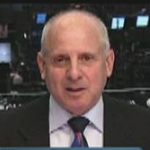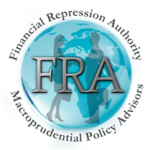
Blog
 04/01/2020 - The Roundtable Insight: Charles Hugh Smith on the Social, Financial and Economic Implications of the Coronavirus!
04/01/2020 - The Roundtable Insight: Charles Hugh Smith on the Social, Financial and Economic Implications of the Coronavirus!

 04/01/2020 - The Roundtable Insight: John Charalambakis and Yra Harris on the Virus, Economy and Investing
04/01/2020 - The Roundtable Insight: John Charalambakis and Yra Harris on the Virus, Economy and Investing

 03/31/2020 - Spanish: Alejandro Tagliavini – El dólar después de coronacrash
03/31/2020 - Spanish: Alejandro Tagliavini – El dólar después de coronacrash

“Es difícil proyectar en medio de la sorpresa del coronavirus. Pero hay que intentarlo para darle algo de racionalidad a esta película de alta ciencia ficción que han desencadenado los gobiernos.”
 03/24/2020 - Yra Harris: My Fantasy News, “China Swaps U.S. Treasuries For Fort Knox”
03/24/2020 - Yra Harris: My Fantasy News, “China Swaps U.S. Treasuries For Fort Knox”

“The issue for global finance has been and will be DEBT, DEBT, DEBT, aided by the policies of lower for longer interest rates by the Bernanke, Yellen, Kuroda, and for eight horrendous years, Mario Draghi. The tide is going out and it seems that everyone has been floating naked on a tsunami of cheap funds.”
 03/24/2020 - Spanish: Alejandro Tagliavini – La peste que faltaba, el “dinero helicóptero”
03/24/2020 - Spanish: Alejandro Tagliavini – La peste que faltaba, el “dinero helicóptero”

“A ver. En el apuro muchos hablan de “la crisis económica del coronavirus” cuando este infecta a humanos, pero no realiza transacción alguna, de modo que sólo es causante de la crisis sanitaria. La económica, que probablemente sea la peor de la historia moderna, incluso peor que la que comenzó con la caída de Wall Street el 29 de octubre de 1929, se debe exclusivamente a las medidas adoptadas por los gobiernos y al pánico creado.”
 03/16/2020 - Yra Harris: Demand Shock and Debt Overhang Risks
03/16/2020 - Yra Harris: Demand Shock and Debt Overhang Risks

“The economic machine is being forced to slow to a crawl but the overhang of debt remains. This is the issue of the DEMAND SHOCK we have spent so much time discussing on this blog. If this situation continues for a few months how fast do you think unemployment rises to 5.5% or even higher? The effort to limit the pain by fiscal solutions will prove a very valuable tool but for how long can the government go without any revenue stream before FOREIGN LENDERS turn off the spigot?”
 03/16/2020 - Spanish: Alejandro Tagliavini – Coronavirus: después puede venir lo peor
03/16/2020 - Spanish: Alejandro Tagliavini – Coronavirus: después puede venir lo peor

“¿Realmente el coronavirus es tan serio? El especialista Pablo Goldsmith, por caso, dice que no. Como referencia, recordemos que la epidemia por el virus H1N1, otra neumonía viral, provocó en Argentina 685 muertes en 5 meses. No se tomaron medidas excepcionales, cierres de aeropuertos, restricciones a la movilidad individual, cancelación de actividades públicas, y mucho menos la abolición de las garantías constitucionales.”
‘”Is the coronavirus really that serious? Specialist Pablo Goldsmith, for example, says no. As a reference, let us remember that the H1N1 epidemic, another viral pneumonia, caused 685 deaths in Argentina in 5 months. No action was taken. exceptional, airport closings, restrictions on individual mobility, cancellation of public activities, much less the abolition of constitutional guarantees. ”
 03/10/2020 - Spanish: Alejandro Tagliavini – Con la excusa del coronavirus, los Estados destruyen mercados y el rebote que vendrá
03/10/2020 - Spanish: Alejandro Tagliavini – Con la excusa del coronavirus, los Estados destruyen mercados y el rebote que vendrá

“Algún día entenderemos que la violencia solo destruye a la naturaleza que de suyo provee los recursos para una vida digna para todos. Entretanto seguiremos autoflagelándonos, creando pobreza y desorden.”
 03/09/2020 - Guy Haselmann on the Coronavirus – the Catalyst for System Failure?
03/09/2020 - Guy Haselmann on the Coronavirus – the Catalyst for System Failure?

“Today’s global economic system is more intertwined than at any point in history. For the past 30 years in particular, globalization and the Theory of Comparative Advantage have been alive and well. Technological advancements and transportation improvements have truly ‘shrunk the world’, allowing more countries to participate and benefit from international trade.
The globalized world economy has become a vast network of complex supply chains, interconnectedness and co-dependence. The benefits have been wide-spread and done more to lift the human condition, and more people out of poverty, than any development in history. However, this increase in economic complexity has magnified global vulnerabilities, opening up the risk of rapid and large-scale failure and contagion: a period of anti-globalization. COVID-19 is the catalyst that is triggering a supply-side crisis; one that is further exacerbated by a simultaneous demand-side shock.”
 03/05/2020 - The Roundtable Insight: Yossi Kaplan and Charles Hugh Smith on the Virus and the New World Order
03/05/2020 - The Roundtable Insight: Yossi Kaplan and Charles Hugh Smith on the Virus and the New World Order

 02/28/2020 - The Roundtable Insight: Dr. Lacy Hunt and Yra Harris on the Virus and Economy/Markets Implications
02/28/2020 - The Roundtable Insight: Dr. Lacy Hunt and Yra Harris on the Virus and Economy/Markets Implications

 02/28/2020 - The Roundtable Insight: David Rosenberg, Yra Harris, Peter Boockvar & Jim Bianco on the Virus and Economy/Market Implications
02/28/2020 - The Roundtable Insight: David Rosenberg, Yra Harris, Peter Boockvar & Jim Bianco on the Virus and Economy/Market Implications

 02/19/2020 - Yra Harris on Risks to the Global Financial System
02/19/2020 - Yra Harris on Risks to the Global Financial System

“The global financial system seems to be gearing up for massive actions by the global central banks in an effort to calm the potential headwinds that a deflationary fallout would force upon the world. There is a NEGATIVE FEEDBACK LOOP in motion as the U.S. DOLLAR rally against the emerging market currencies will force corporate debtors in emerging economies to push goods out at depressed prices, from commodities to manufactured goods. Regardless of how slow economic growth turns the DEBT has to be repaid.
There is TRILLIONS of U.S. dollar-denominated debt coming due over the next 18 months ..
It is for this potential feedback that Federal Reserve Chairman Jerome Powell needs to CUT INTEREST RATES/OR OPEN MASSIVE SWAP LINES TO EMERGING MARKET CENTRAL BANKS that don’t already have access. There is a GLOBAL FINANCIAL CRISIS LOOMING. The recent price action in GOLD, COMMODITIES and, of course, the flattening of the yield curves portend GLOBAL CONCERNS about what the IMF director warns.
It is not inflation driving GOLD higher but concerns about central banks panicking in an effort to fight their dread of deflation in a fiat currency world. If Powell did this correctly he could head off some of the immediate fears by maintaining the cuts would be immediately removed if the COVID-19 virus proved to be a short-lived drag on global growth and potential financial impacts.
This potentially has much larger implications for the world’s financial system. Again, who is this guy Jerome? It’s time to be forthright and explain this is not meant to assuage equity investors but those economic actors with DOLLAR liabilities. Jerome do the math. Again, GOLD made even higher highs against many of the world’s currencies. Powell, it’s time to heed the wisdom of Paul Volcker and listen to the wisdom of market signals: gold, dollar, yield curves et al.”
 02/19/2020 - Nouriel Roubini on the Diversification by China and Russia into Gold
02/19/2020 - Nouriel Roubini on the Diversification by China and Russia into Gold

“Dumping US Treasuries would impede China’s economic growth if dollar assets were sold and converted back into renminbi (which would appreciate). But China could diversify its reserves by converting them into another liquid asset that is less vulnerable to US primary or secondary sanctions, namely gold. Indeed, both China and Russia have been stockpiling gold reserves (overtly and covertly), which explains the 30% spike in gold prices since early 2019.
In a sell-off scenario, the capital gains on gold would compensate for any loss incurred from dumping US Treasuries, whose yields would spike as their market price and value fell. So far, China and Russia’s shift into gold has occurred slowly, leaving Treasury yields unaffected. But if this diversification strategy accelerates, as is likely, it could trigger a shock in the US Treasuries market, possibly leading to a sharp economic slowdown in the US.”
 02/18/2020 - Yra Harris – “Why are gold prices at seven-year highs?”
02/18/2020 - Yra Harris – “Why are gold prices at seven-year highs?”

“Why are gold prices at seven-year highs? More significantly, why are the GOLD/EUR, GOLD/YUAN, GOLD/YEN, GOLD/SWISS crosses at or close to making all-time highs? When the stock market rally of 1998-2000 was in full swing GOLD was being sold and trading around $280 an ounce. In fact, the BANK OF ENGLAND famously sold its GOLD between 1999 and 2002 because they were so sure of its demise as a haven/currency alternative.”
 02/18/2020 - Martin Armstrong on the Crisis unfolding in the Repo Market
02/18/2020 - Martin Armstrong on the Crisis unfolding in the Repo Market

“If there was a free market, then you would have witnessed the bonds crash in price and interest rates rise as people perceived risk. The introduction of negative interest rates which began in late 2014 going into 2015.75 and Quantitative Easing, shifted the risk from the free market to the central banks. This is what I mean that they are now TRAPPED! If interest rates rise, their portfolios crash in value (price).
Now we have a serious crisis that has shifted from the free trading bond markets exclusively to the central banks. This is now part of the crisis unfolding in the REPO Market. There does not appear to be any recovery on the horizon. Politicians are undermining the confidence in government, to begin with, and that will influence bond buyers.”
 02/18/2020 - Spanish: Alejandro A. Tagliavini – Argentina, no es Tesla: ¿híper o ajuste de hecho?
02/18/2020 - Spanish: Alejandro A. Tagliavini – Argentina, no es Tesla: ¿híper o ajuste de hecho?

“En lo que va de febrero, los mercados globales suben: el S&P 500 más de 4,5% llegando a máximos históricos. Ahora, trepan los sectores de mayor riesgo, el ETF de semiconductores VanEck Vectors (NYSE:SMH) más de 10%, el de SPDR S&P Biotech (NYSE:XBI), casi 9% y el de SPDR (NYSE:XLK) del sector tecnológico 6,5%. En cambio, han tenido el peor desempaño los de aversión al riesgo: el ETF SPDR (NYSE:XLU) de servicios públicos y los ETF SPDR (NYSE:XLP) de consumo y de productos de primera necesidad.”
 02/13/2020 - Spanish: Alejandro A. Tagliavini – Existen peores pandemias que el coronavirus
02/13/2020 - Spanish: Alejandro A. Tagliavini – Existen peores pandemias que el coronavirus

“Según Capital Economics, “los esfuerzos para contener el coronavirus han provocado una fuerte desaceleración del crecimiento en China” y, a nivel global, llegarían a u$s280.000 M las pérdidas económicas durante el primer trimestre de 2020. El PBI mundial no crecerá en términos trimestrales por primera vez desde 2009.”
 02/12/2020 - The Roundtable Insight: Charles Hugh Smith on the Emerging Repo Crisis
02/12/2020 - The Roundtable Insight: Charles Hugh Smith on the Emerging Repo Crisis

 02/11/2020 - Spanish: Alejandro A. Tagliavini – ¿Por qué el dólar es la divisa con mejores expectativas a nivel global?
02/11/2020 - Spanish: Alejandro A. Tagliavini – ¿Por qué el dólar es la divisa con mejores expectativas a nivel global?







